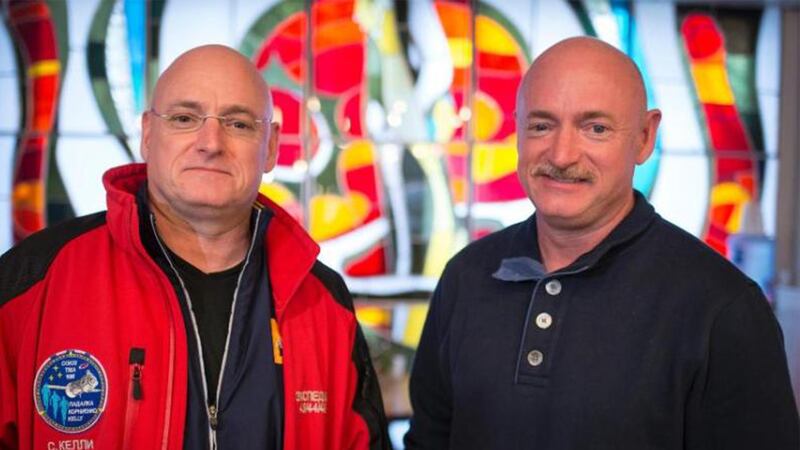A trip to space would be a life-changing experience. But scientists didn’t realize how much it changes astronauts when it comes to the building blocks of life.
NASA sent astronaut, and twin, Scott Kelly, to the International Space Station for a one-year mission to study the effects of space on the human body, KTLA reported.
Scott Kelly was in space from March 2015 to March 2016, Newsweek reported.
His identical twin brother Mark kept his feet firmly planted on Earth.
The two men were identical, down to their cellular level, before the trip, but that can’t be said now.
Scroll down to continue reading
More news from KIRO 7
- Boy stabbed to death had invited suspected killer for pizza the night before
- No charges filed after man killed in apparent road rage shooting on I-5
- BBB warns about popular online quizzes
- Teen dies after sinus infection travels to brain, family says
- WA Lottery lists Puget Sound's 'luckiest stores' as Powerball Jackpot rises to $455M
Scott now differs from Mark when it comes to their DNA.
What? My DNA changed by 7%! Who knew? I just learned about it in this article. This could be good news! I no longer have to call @ShuttleCDRKelly my identical twin brother anymore. https://t.co/6idMFtu7l5
— Scott Kelly (@StationCDRKelly) March 10, 2018
Getting into the science specifics.
Scientists looked at the spaceman's metabolites, cytokines and proteins before and after his voyage. They said the mission caused Scott's "space genes" to switch on, and they didn't turn off after he returned to Earth. The experts believe they were turned on because of the stress of space travel, KTLA reported.
NASA said in the study that Scott's cells showed changes in the length of telomeres, the ends of chromosomes that show biological aging. They were lengthened while he was in space, but they returned to almost normal days after he landed. There was also damage to his DNA that was caused by radiation and the restriction on his calories. His collagen, blood clotting and bone formation also changed and because of zero gravity and fluid shifts.
Kelly's year-long trip in space was a precursor to planned three-year missions to Mars. Scientists needed to test how space missions that are longer than what is currently done impacts astronauts, KTLA reported.
Click here to read NASA's study.
Related video:
Cox Media Group








